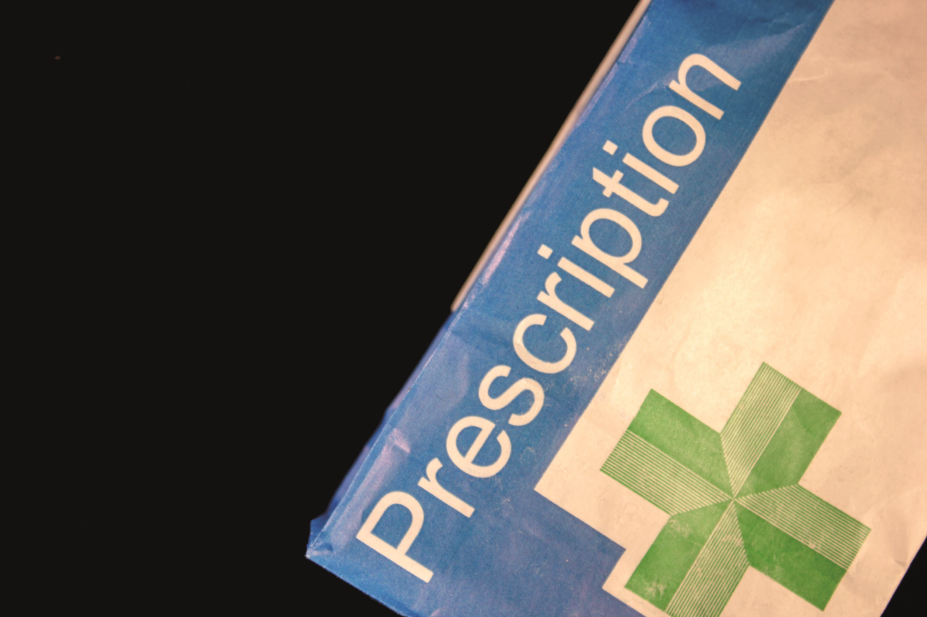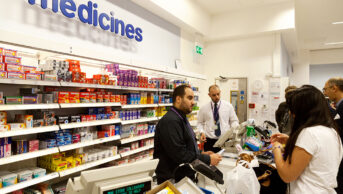
Shutterstock.com
NHS patients have accrued a total debt of £246m in unpaid penalty fees for incorrectly claiming free NHS prescriptions, the National Audit Office (NAO) has said.
The debt, built up between 2014/2015 and 2017/2018, was highlighted in a report published on 14 May 2019 by the NAO, which described the eligibility criteria for free prescriptions as “overly complicated” and prone to “genuine mistakes and confusion for many people”.
In an attempt to mitigate this, the report notes that NHS Business Services Authority (BSA) has introduced checks on an increasing number of exempt prescriptions over the three years, and issued 5.6 million penalty charge notices (PCNs) — totalling £676m — to patients who appear to have wrongly claimed for a free prescription in that time.
However, around £246m of that figure is still unpaid by patients, said the NAO, and just £133m has been collected. The remainder of the penalty charges, worth £297m, were resolved without the charge being paid. A penalty charge includes both the original cost of the prescription and a penalty fee of up to £100.
The report states that the debt from unpaid notices has meant that “NHS BSA has sought approval from the Department of Health and Social Care to implement a debt collection process for prescriptions”.
A debt collection process is already in place for dental charges, which uses private debt collector company Akinika — a member of the Captia group — to follow up patients who have failed to pay after 70 days.
The report also noted that of the 5.6 million notices issued since 2014, 30% were later rescinded after a valid exemption was later confirmed.
According to the NAO, the complicated entitlement rules mean that NHS BSA is unable to identify all of the vulnerable people eligible for exemption before issuing a PCN, and instead relies on the vulnerable person to challenge the PCN, which they may feel unable to do.
The NAO report therefore concluded: “A simpler system or better real-time checking will be important going forward in deterring fraud but not disadvantaging vulnerable people.”
It added that a real-time exemption checking pilot had begun in February 2019 in four pharmacies.
“This will allow pharmacists to undertake checks as they issue prescriptions,” the report said. “The Department [of Health and Social Care], NHS England and NHS BSA will consider whether to extend this service after the pilot is complete.”
NHS Digital announced a real-time exemption checking system in April 2018, which was expected to be piloted that summer.
However, owing to the implementation of the Falsified Medicines Directive in February 2019, the pilot was further delayed before starting in four pharmacies in February 2019.
The scheme is expected to be rolled out in phases, with the first comprising maternity, medical, prepayment, low-income and tax exemptions. The second phase is expected to comprise all Department for Work and Pensions exemptions, including Universal Credit.
Sandra Gidley, chair of the Royal Pharmaceutical Society’s English Pharmacy Board, agreed that the eligibility criteria need “to be simplified before we start to criminalise those that make a genuine mistake navigating it”.
But she added: “Pharmacists should not be the prescription police — they want to spend their time helping people with their medicines rather than checking their exemption status.
“It would be much simpler to have free prescriptions for everyone, as is the case in Scotland, Wales and Northern Ireland, because then no one would have to worry about filling out a form of declaration.”
She said that this system would “also enable the investment in issuing and monitoring PCNs to be spent on patient care”.
Amyas Morse, head of the NAO, said: “Free prescriptions and dental treatment are a significant cost to the NHS, so it is reasonable to reclaim funds from people who are not exempt from charges and deter fraud.
“However, the NHS also needs to have due regard to people who simply fall foul of the confusing eligibility rules. It is not a good sign that so many [PCNs] are successfully challenged.”
You may also be interested in

Tackling the NHS drug budget: why we set up a regional collaboration for medicines value

Lack of joined-up working between pharmacy and general practice is ‘nonsensical’, says former BMA chair
